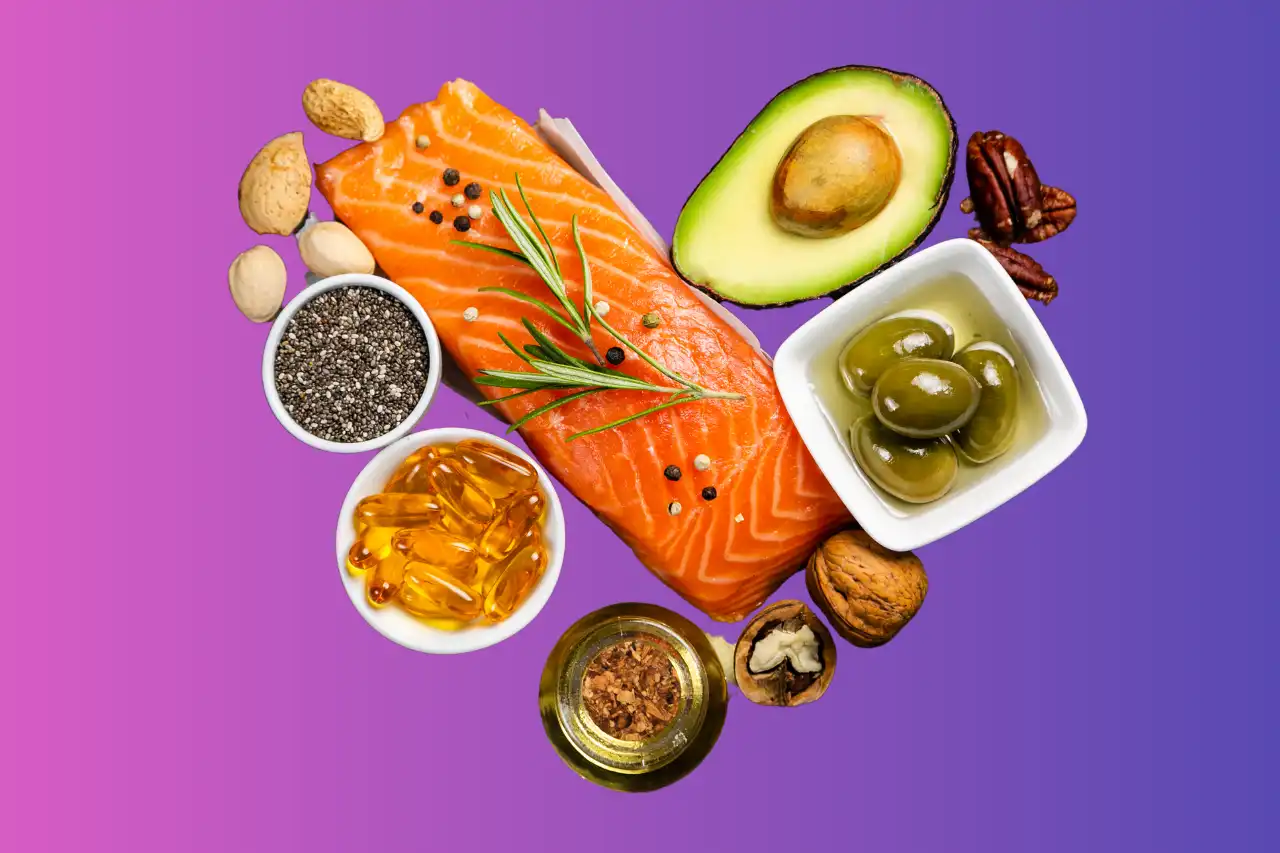-: OMEGA-3 FATTY ACIDS :-
OMEGA-3 FATTY ACIDS – A VITAL NUTRIENT FOR PEAK HEATH…!!!
Omega-3 fatty acids are vital polyunsaturated fats that the body cannot synthesize naturally. They are crucial for brain function, heart health, and inflammation reduction. . The three main types are:-
1> ALA (alpha-linolenic acid)
2> EPA (eicosapentaenoic acid)
3> DHA (docosahexaenoic acid).
ALA is mainly found in plant-based sources, while EPA and DHA are found in fish and marine sources.
Daily Requirements
Men
- Teens (9-13 years) – 1.2 grams per day.
- Men 19+ years – 1.6 grams per day.
Women
- Teens (9-13 years) – 1.0 grams per day.
- Women – 1.1 grams per day.
- Pregnant Women / Breastfeeding Mother – (1.4-1.3 grams) per day.
Children
- Infant (0-12 months) :- 0.5 grams per day.
- Children (1-8 years) :- (0.7-0.9 grams) per day.
Function on different Organ
- Brain
Details
Omega-3s, particularly DHA (docosahexaenoic acid), are crucial components of brain cell membranes and influence neurotransmitter function.
It enhances cognitive function and memory, reduces the risk of neurodegenerative diseases like Alzheimer’s, supports mental health, reduces depression and anxiety. Also helps in fetal brain development during pregnancy.
- Heart
Details
Omega-3s help regulate heart rhythm, reduce inflammation, and improve blood circulation. Also it lowers blood pressure, reduces triglyceride levels, prevents blood clot formation, improves cholesterol levels (raises HDL, lowers LDL)thus decreases the risk of overall heart disease and stroke.
- Eyes
Details
DHA, a type of omega-3, is a major structural component of the retina. It supports clear vision and eye hydration, reduces the risk of age-related macular degeneration (AMD).
- Bones and Joints
Details
Omega-3s help maintain bone density and reduce joint inflammation.
Also it lowers the risk of osteoporosis, reduces joint pain and stiffness (useful for arthritis) and enhances overall calcium absorption for strong bones.
- Gut
Details
Omega-3s maintain gut barrier integrity and support a healthy microbiome. It reduces gut inflammation (helps in conditions like Crohn’s disease and ulcerative colitis), prevents leaky gut syndrome. And thus supports our digestion and nutrient absorption.
- Skin
Details
It is essential for maintaining skin hydration and reducing inflammation. Also improves our skin elasticity, reduces acne, eczema, and psoriasis, and slows down premature aging and wrinkles.
- Pancreas
Details
Omega-3s aid insulin production and secretion, reduces the risk of type 2 diabetes and protects against pancreatic inflammation.
- Kidneys
Details
Omega-3s help to maintain kidney function by reducing inflammation and supporting blood flow regulation. Also it protects against kidney disease and damage and reduces protein loss in urine (important for kidney health).
- Liver
Details
Omega-3s help in fat metabolism, prevent non-alcoholic fatty liver disease (NAFLD) and reduce liver inflammation.
- Hair
Details
Omega-3s provide essential nutrients for hair follicles and promote scalp health.
It Prevents hair loss, enhances hair shine and strength and promotes our hair growth and thickness.
Symptoms incase of Deficiency
- Dry skin and hair.
- Memory problems or difficulty concentrating.
- Joint pain and stiffness.
- Fatigue and poor mood.
- Macular degeneration.
- Increased risk of cardiovascular issues.
- Irregular heart beat.
- Migraine.
Diagnosis
The most common tests to assess iodine levels include:-
- Fatty Acid Profile Test
Details
A Fatty Acid Profile Test can help determine omega-3 levels in the blood.
- Omega-3 Index Test
Details
Omega-3 Index Test measures EPA and DHA levels in red blood cells to assess deficiency risks.
Food Sources
Veg Sources
- Nuts and Seeds
- Walnuts.
- Flax seeds.
- Chia seeds.
- Hemp seeds.
- Oil
- Canola oil.
- Soy oil.
- Others
- Soybeans.
- Tofu.
- Seaweed.
- Algae-based supplements.
Non-Veg Sources
- Fish
- Salmon.
- Mackerel.
- Sardines.
- Herring.
- Trout.
- Albacore tuna.
- Oil
- Fish oil.
- Cod liver oil.
- Shellfish
- Shrimp.
- Oysters.
- Other
- Grass-fed meat.
- Eggs enriched with omega 3
What if Overconsumption
Omega-3 is beneficial, but excessive intake can lead to:-
- Blood thinning, increasing the risk of bleeding disorders.
- Digestive issues (diarrhea, bloating).
- Low blood pressure.
Omega-3 fatty acids are essential for overall well-being, supporting heart, brain, and joint health. Including a variety of omega-3-rich foods in your diet ensures optimal health benefits. Balance is key—moderate consumption leads to long-term vitality and disease prevention.



